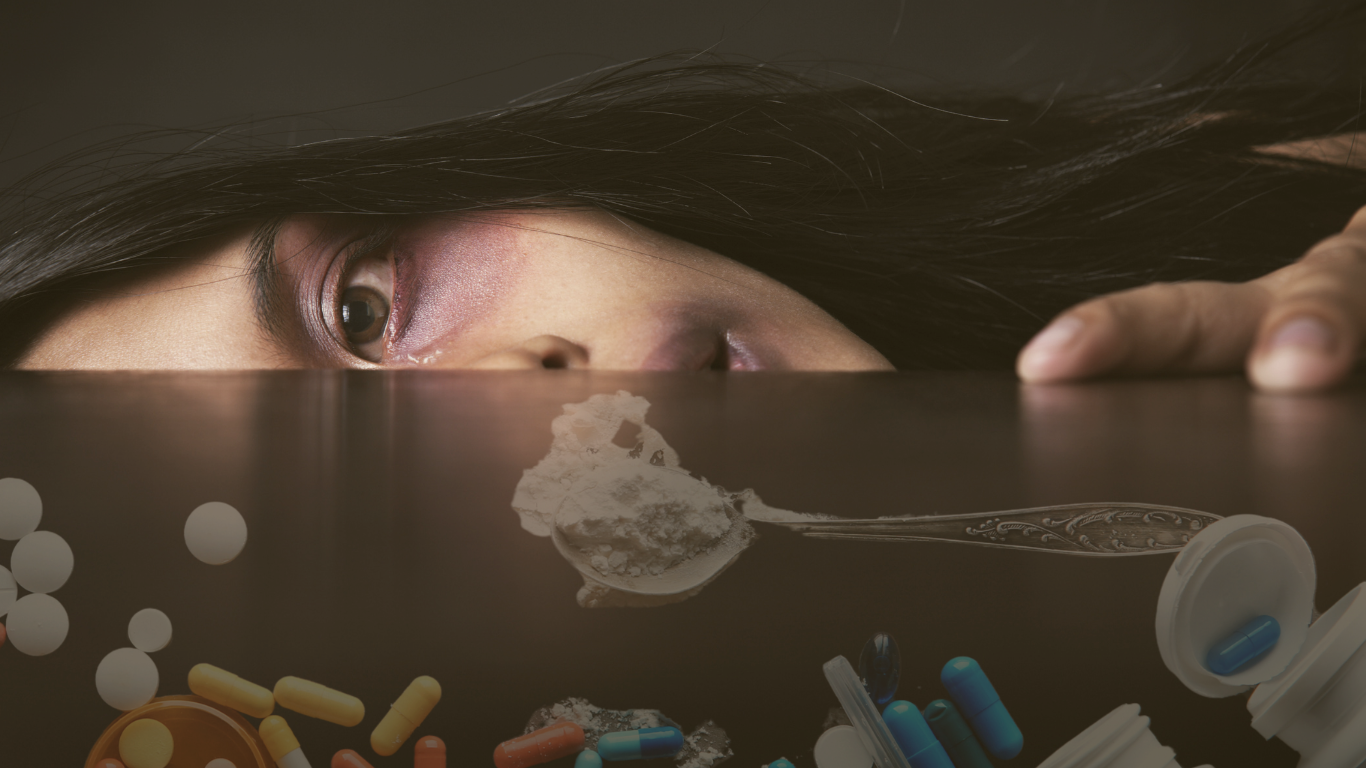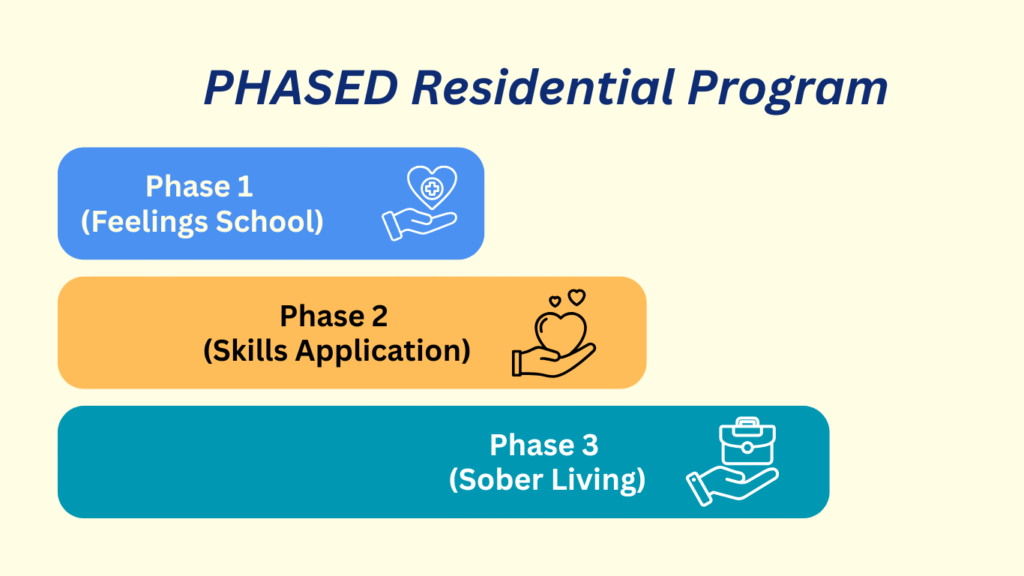Meth Rehab in Atlanta, GA

Methamphetamine addiction is a relentless force that disrupts lives, relationships, and communities. For those struggling to choose a place for meth addiction treatment in Atlanta, GA, finding the right support can feel overwhelming.
MARR Treatment Centers, a leader in evidence-based care, offers a structured, compassionate approach tailored to the unique challenges of meth addiction.
Below, we’ll explore what meth addiction entails, the treatment options available, and why MARR Treatment Centers stand out as a premier choice for recovery.
The Realities of Meth Addiction
Methamphetamine, commonly known as crystal meth, is a highly addictive stimulant that affects the central nervous system, causing intense feelings of euphoria, energy, and heightened focus.
Over time, dependence develops, and withdrawal symptoms—such as severe depression, fatigue, and paranoia—make quitting nearly impossible without professional help.
For individuals and their families, the cycle of meth addiction can feel insurmountable. Meth’s grip often leads to co-occurring mental health disorders like anxiety or depression, creating a complex web of challenges.
Dual diagnosis treatment—addressing both substance use and mental health—is critical for long-term recovery. MARR’s programs are designed to tackle these interconnected issues holistically.
Signs and Symptoms of Meth Addiction
Physical signs of meth use include:
- Severe weight loss
- Dental problems (“meth mouth”)
- Skin sores and infections
- Dilated pupils
- Rapid eye movement
Psychological symptoms often involve:
- Intense paranoia
- Visual and auditory hallucinations
- Aggressive behavior
- Confusion and anxiety
- Sleep problems
Regular meth use causes changes in brain structure and function. Users may experience memory loss, impaired judgment, and difficulty feeling pleasure from everyday activities.
The treatment-seeking population in Georgia shows high rates of these symptoms, indicating widespread addiction issues.
Why Choose MARR Over Other Atlanta Treatment Centers?
MARR has served Atlanta for over 45 years, earning a reputation for evidence-based care and gender-specific programs. We provide tailored environments where individuals can heal without distractions.

Phased Therapeutic Community Programs
MARR’s therapeutic community is divided into three phases:
- Phase 1 (Feelings School): A six-week immersion in therapy, psychiatric evaluation, and community building.
- Phase 2 (Skills Application): Eight weeks focused on relapse prevention, family counseling, and real-world skill development.
- Phase 3 (Sober Living): Twelve+ weeks of independent living, employment, and continued therapy.
This gradual transition fosters accountability and prepares clients for life beyond rehab.
Community-Centric Care
MARR emphasizes group therapy and therapeutic community models, where clients support one another in shared experiences. This approach reduces isolation and builds resilience against relapse.
Group Therapy
Group therapy is a therapeutic approach that brings together individuals facing similar challenges or issues—often, but not limited to, addiction. This environment allows participants to share their experiences, challenges, and successes in a structured setting.
One of the core benefits of group therapy is peer support. Clients can relate to each other’s stories, which fosters a sense of belonging and understanding. This connection is crucial for individuals who may feel isolated due to their struggles with addiction.
Therapeutic Community Model
A therapeutic community (TC) is a structured environment that facilitates personal change through a community-oriented approach. In this model, the community plays a central role in the treatment process.
TCs promote collaborative living, where clients are encouraged to take responsibility not only for their recovery but also for the well-being of the community. This sense of responsibility can enhance self-esteem and social skills.
Specialized Services for Professionals
MARR’s Recovering Professionals Program addresses the unique challenges of high-stress careers, offering long-term monitoring, collaboration with licensing boards, and peer support groups.
Recognizing the importance of connection, the program offers peer support groups specifically designed for professionals in recovery.
These groups provide a space for encouragement and accountability. Participants can share their struggles, celebrate successes, and hold each other accountable for their recovery goals.
The Recovery Process: What to Expect at MARR
Step 1: Comprehensive Evaluation
A 72-hour evaluation assesses medical, psychological, and addiction needs to determine the optimal level of care.
Step 2: Detox and Stabilization
Medical detox eases withdrawal symptoms, followed by structured therapy to rebuild physical and emotional health.
Step 3: Skill-Building and Relapse Prevention
Through CBT and DBT, clients learn to recognize triggers and develop healthier coping mechanisms.
Step 4: Reintegration and Aftercare
Clients transition to sober living, employment, and community engagement while maintaining therapy support.
Key Tips for Family Members
- Encourage honesty: Create a nonjudgmental space for open dialogue.
- Set boundaries: Protect your well-being while supporting your recovery.
- Attend support groups: Organizations like Alcoholics Anonymous (AA) provide guidance for families.

Our Meth Addiction Treatment Options in Atlanta, GA
Recovery begins with a treatment plan tailored to individual needs. At MARR Treatment Centers, options range from inpatient rehab to outpatient programs, each designed to address different stages of recovery.
Medical Detox: The First Step
Detoxification is essential for safely managing withdrawal symptoms. MARR’s medical detox provides 24/7 supervision to ease physical and emotional discomfort, ensuring a stable foundation for further treatment.
Therapeutic Community
A therapeutic community offers immersive care for those needing intensive support. Clients live in a structured environment and engage in daily therapy, group counseling, and skill-building activities.
Partial Hospitalization Program (PHP) and Intensive Outpatient Program (IOP)
PHP and IOP bridge the gap between residential care and independence. PHP involves full-day therapy sessions, while IOP offers part-time schedules, allowing clients to balance treatment with work or family obligations.
Both programs emphasize cognitive-behavioral therapy (CBT) and dialectical behavior therapy (DBT) to address negative thought patterns and behavioral triggers.
Aftercare and Sober Living
Long-term success often hinges on aftercare and sober living support. MARR’s phased approach includes ongoing counseling, alumni groups, and volunteer opportunities to reinforce sobriety.
Components of Effective Meth Addiction Treatment
Treatment for methamphetamine addiction requires a comprehensive, multi-faceted approach that addresses both physical dependency and psychological aspects. Successful treatment outcomes depend on proper medical supervision, behavioral therapies, and ongoing support.
Detoxification and Managing Withdrawal Symptoms
The first phase of meth treatment focuses on safely managing the detoxification process. Medical professionals monitor patients 24/7 during the initial 7-10 days of withdrawal.
Common withdrawal symptoms include:
- Severe fatigue and depression
- Intense drug cravings
- Anxiety and agitation
- Sleep disturbances
- Increased appetite
Medical staff provide supportive care to keep patients comfortable and stable. This includes IV fluids, nutritional support, and medications to manage specific symptoms.
Patients receive constant monitoring of vital signs and mental status during this critical period. The goal is to help them safely navigate acute withdrawal while preventing medical complications.
Individual and Group Therapy Options
We utilize evidence-based therapy approaches to address the psychological aspects of addiction.
Individual therapy sessions help patients:
- Identify triggers and develop coping skills
- Work through trauma and underlying issues
- Create relapse prevention strategies
- Build healthy life skills
Group therapy provides peer support and shared learning experiences.
Patients participate in:
- Skills-building workshops
- Recovery education classes
- 12-step meetings
- Family therapy sessions
Medication Management and Dual Diagnosis Care
Many people with meth addiction have co-occurring mental health conditions that require integrated treatment. A psychiatric evaluation determines if medications are needed.
Treatment plans may include:
- Antidepressants or anti-anxiety medications
- Mood stabilizers
- Sleep aids
- Vitamins and supplements
Regular medication reviews ensure optimal dosing and minimal side effects. The medical team adjusts treatment as needed based on patient response and progress.
Mental health professionals provide specialized therapy for conditions like depression, anxiety, and PTSD alongside addiction treatment.
Supportive Therapies for Long-Term Recovery
Professional therapy and holistic treatments give people in meth recovery essential tools to manage triggers and prevent relapse. These evidence-based approaches help build lasting recovery skills.
Cognitive Behavioral Therapy and Dialectical Behavior Therapy
Studies show that CBT and DBT are highly effective for treating meth addiction. These therapies teach vital coping skills to handle stress and cravings.
CBT helps identify negative thought patterns and behaviors that lead to drug use.
Patients learn to:
- Recognize early warning signs of relapse
- Develop healthy responses to triggers
- Build problem-solving skills
- Challenge destructive thoughts
DBT focuses on emotional regulation and mindfulness.
The therapy helps patients:
- Accept complicated feelings without judgment
- Practice grounding techniques
- Improve interpersonal relationships
- Manage mood swings and anxiety
Holistic Approaches to Substance Abuse
Combining traditional therapy with holistic treatments can benefit long-term recovery. These methods address the whole person—body, mind, and spirit.
Key holistic therapies include:
- Meditation and mindfulness practices
- Yoga and movement therapy
- Art and music therapy
- Acupuncture
- Nutrition counseling
Holistic approaches give patients healthy ways to reduce stress and anxiety. Regular exercise and mindfulness can stabilize moods and reduce cravings.
Creating a supportive environment through therapy groups helps patients maintain sobriety. During recovery, patients learn from others while building positive social connections.
Recovery from Meth Addiction Is Possible
Meth addiction is a battle, but it’s not insurmountable. MARR Treatment Centers offers a lifeline through structured, compassionate care tailored to each individual’s needs for meth rehab in Atlanta, GA.
Whether you’re seeking inpatient treatment, PHP, or IOP, MARR’s phased approach, holistic therapies, and strong community support provide a roadmap to long-term recovery.
If you or a loved one is ready to break free from meth’s grip, contact MARR today at 678-884-4080 to explore our evidence-based programs for meth rehab in Atlanta, GA. Recovery is possible—and with the right support, it’s achievable.
